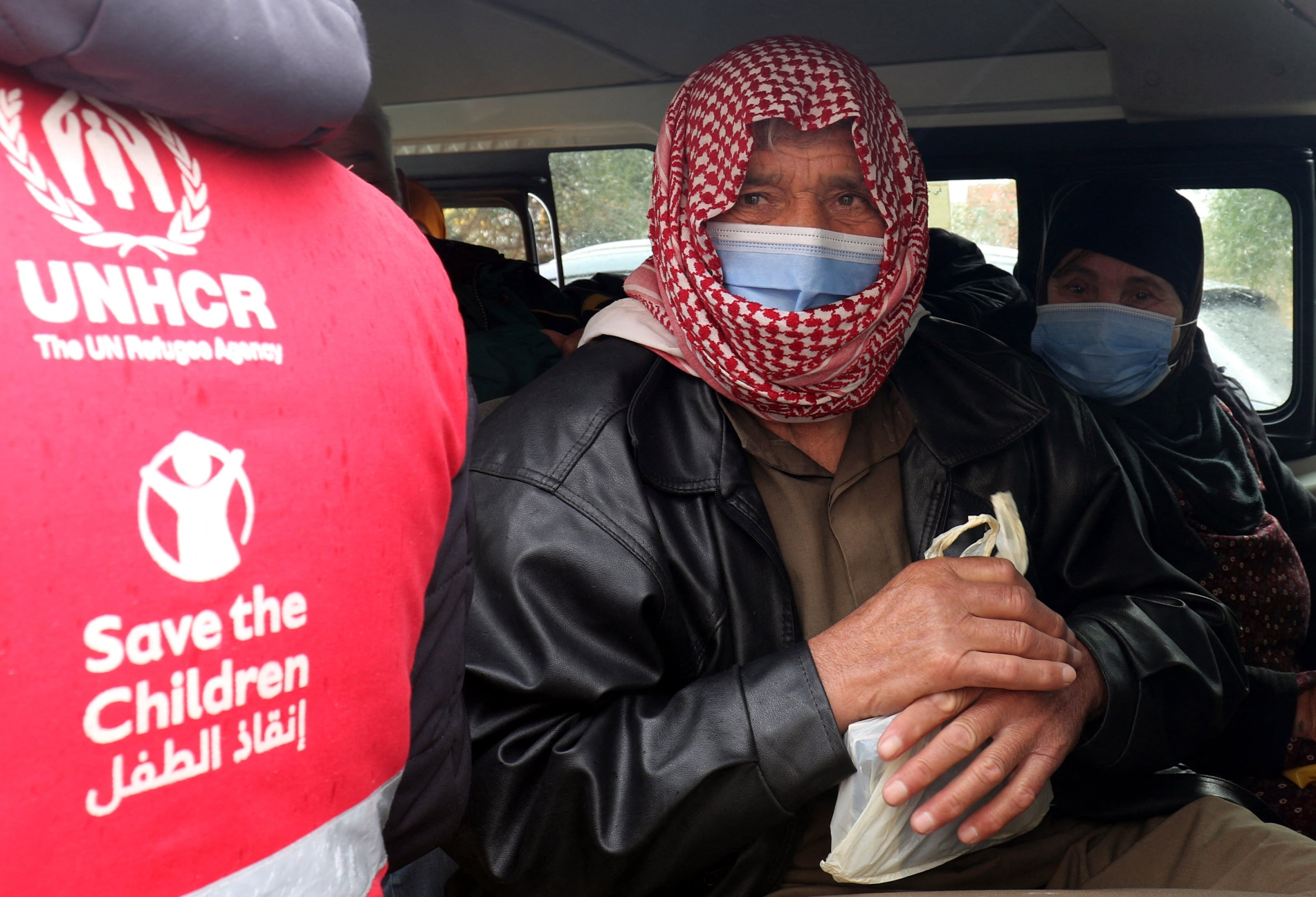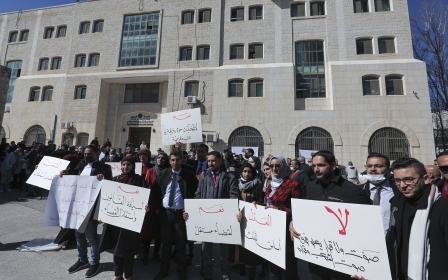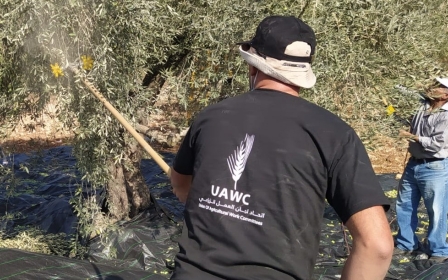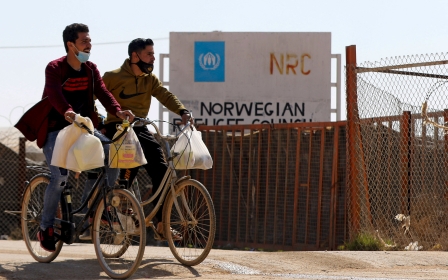Jordan: Foreign NGOs secretly lobby to fire local staff despite Covid-19 protection law

A group of international NGOs in Jordan have for months been privately pressuring the government - with the help of 15 foreign ambassadors - for exemptions to a law protecting workers from dismissal during the Covid-19 pandemic, Middle East Eye can reveal.
After implementing a strict lockdown in early 2020, the Jordanian government introduced several temporary measures to ease the blow of the pandemic on the country’s already-faltering economy.
One piece of legislation, Defence Order No. 6, restricted wage cuts in the formal private sector while giving firms some relief, and stipulated that companies must retain workers.
A letter seen by MEE sent to authorities by a group called "the Jordan INGO Forum" in November 2021 and signed by CEOs and country directors of 31 international NGOs, including Oxfam, Save the Children, World Vision International, and the Norwegian Refugee Council, urged authorities to allow them to bypass the order to dismiss Jordanian members of staff.
New MEE newsletter: Jerusalem Dispatch
Sign up to get the latest insights and analysis on Israel-Palestine, alongside Turkey Unpacked and other MEE newsletters
The INGOs argue that they are being forced to keep paying employees on fixed-term contracts who would be released when their project ends. However, it is common for local employees on fixed-term contracts to immediately be re-employed using money earmarked for other schemes at the end of their project, moving between contracts without periods of unemployment.
Defence Order No. 6 applies to all employees who are on their third contract renewal.
An employee at one of the INGOs told MEE: "Of course, staff are worried about losing their jobs during a pandemic. These are all long-term employees on their third contract renewal. They feel they should have the same protections as all Jordanian workers, especially in organisations whose budgets have grown over the past two years."
In the letter, shared with MEE by the same source, the INGOs wrote that parts of the order are “untenable for the non-profit sector”.
“We are left in an unsustainable position,” they wrote, adding that the obligation to “pay employees whose jobs have ended” has meant diverting around 1m Jordanian dinars ($1.41m) from humanitarian programmes in the kingdom and elsewhere in the past 18 months.
“Several NGOs are on the brink of financial crisis,” they added. “We ask for your support in identifying solutions to the specific challenges we are facing under Defense Order No. 6.”
When asked, the INGO signatories didn’t provide MEE with details on their budgets or which NGOs were in crisis.
Incomplete figures from the website of UNOCHA, the United Nations agency coordinating emergency relief efforts, show that in 2021, INGOs in Jordan received more than $40m.
In 2020 they received over $67m; in 2019, nearly $40m; in 2018, it was $69m; and in 2017, the figure was more than $195m.
The letter’s signatories, many of whom advocate for economic justice and social protection, are the CEOs or country directors of: Action Aid Arab Region, Action Contre la Faim, AVSI, Blumont, Care USA, Danish Refugee Council, Dignity, Finn Church Aid, Good Neighbors International, Humanity and Inclusion, iMMAP Inc, International Catholic Migration Commission, International Medical Corps, Intersos, Islamic Relief International, Johanniter International Assistance, La Chaine de l’Espoir, Lutheran World Federation, Medair, Mennonite Central Committee, Mercy Corps, Middle East Children's Institute, Norwegian Refugee Council, Oxfam (and Oxfam GB), Save the Children Jordan, Syrian American Medical Society, Terre des hommes Italy, Terre des hommes Lausanne, Vento Di Terra, War Child and World Vision International.
MEE asked each of the INGOs for comment on why they signed the letter, why the lobbying has been kept from the public, and why local NGOs - who are also subject to the order - were not included in the letter. MEE received no response prior to publication.
Jordan INGO Forum (JIF), which is chaired by the local head of Oxfam, represents a total of 61 NGOs. MEE understands that some of the INGOs who didn’t sign the letter have been counter-lobbying against the push for exemptions from the defence order.
None of the INGOs, nor the royal court, the prime minister's office, labour ministry or the planning ministry would tell MEE whether any exemptions had been granted, or whether any staff had already been fired as a result.
However, MEE saw several forms entitled “List of employees to be released associated to contract” sent to the government by an INGO requesting permission to dismiss employees when project contracts ran out.
And in the JIF's November letter, they wrote that they have "recently facilitated the identification of employees currently affected by the defense order" and hope to "ensure that your ministry and relevant officials receive evidence-based information to make quick decision [sic]".
Prime Minister Bishr al-Khasawneh said on Sunday that Defence Order No. 6 will remain in place until the Covid-19 pandemic has completely passed.
Donor pressure
Fifteen European ambassadors also wrote to the government about the impact of Defence Order No. 6 on local and international NGOs in an August 2021 letter seen by MEE.
Then-acting ambassador of the Netherlands, Dolf Hogewoning, wrote to the prime minister and other ministries that the requirement to keep staff on “after donor-funded projects have come to an end… is having a drastic negative impact on the core operations of non-governmental organisations”.
The letter was written on behalf of “representatives of the donor community” - namely ambassadors or acting ambassadors - from Sweden, Australia, Germany, the UK, Spain, Canada, Italy, Belgium, the US, Switzerland, the EU, Japan, France and Norway.
'Some organisations have informed us that they will be forced to close operations in Jordan if no solution is found'
- Dolf Hogewoning, then-acting Dutch ambassador
“Some organizations have informed us that they will be forced to close operations in Jordan if no solution is found,” Hogewoning wrote.
“We would therefore be most grateful for your assistance in urgently exploring viable solutions which would allow NGOs to continue operating sustainably,” he added.
A follow-up letter sent in November by the EU delegation to Foreign Minister Ayman Safadi on behalf of international donors said by the end of 2021, 269 local employees have been forcibly retained by the order despite their contracts ending. It added that funding for another 150 staff contracts in 2022 was "unsecured".
Despite preserving an estimated 100,000 jobs, Defence Order No. 6 has been the subject of some criticism in Jordan.
Rights group Tamkeen last year condemned the legislation for being unclear and unjust, and for discriminating against migrant workers, who are not included.
Forcing employers to pay the wages of out-of-contract workers “has no basis in law”, it added, saying the government had “pitted workers and employers against each other”.
One hotel owner told MEE he loses $60,000 per month in salaries because of the order.
The legislation also does not include informal workers, who make up roughly 35 percent of the workforce, and often come from poor households.
Like its neighbours, Jordan's economy has been hit hard by Covid-19.
A paper published in 2020 by the International Food Policy Research Institute estimated that job losses during Jordan’s aggressive lockdown were over 20 percent, while average household income fell by one-fifth.
The pandemic has also increased unemployment, which now sits around 25 percent. In May 2021, youth unemployment reached a staggering 50 percent.
Mohammad Ersan contributed to this report. To confidentially contact MEE with further information on this story, please contact Frank Andrews at [email protected]
This article is available in French on Middle East Eye French edition.
Middle East Eye delivers independent and unrivalled coverage and analysis of the Middle East, North Africa and beyond. To learn more about republishing this content and the associated fees, please fill out this form. More about MEE can be found here.






